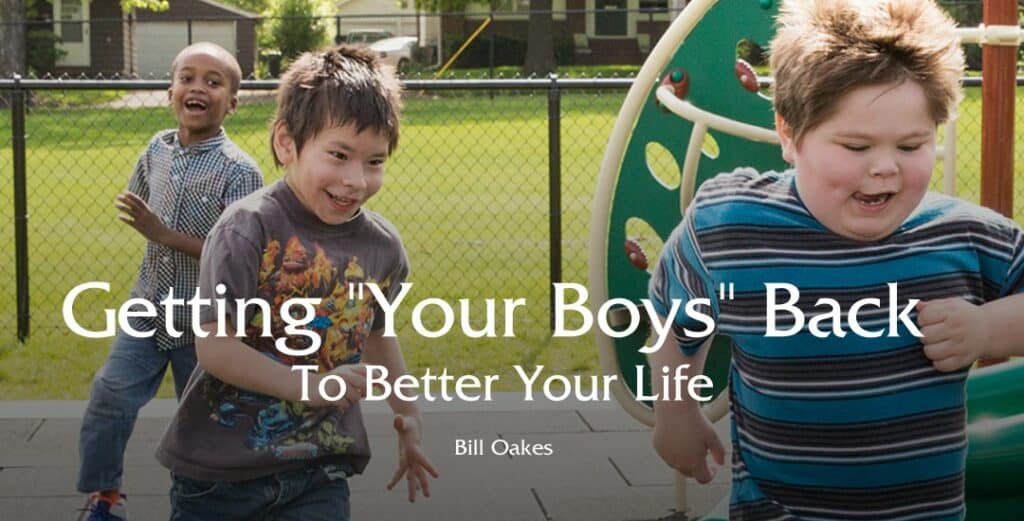Bill Oakes MDI Contributor
When I was a boy, my family moved into a new neighborhood. Soon, my younger brother and I found the other boys who lived nearby, and we started doing things together, mostly outside.
There was Mike from across the street, and Ricky two doors down, and Brad, who was catty-corner from us. Mark and Tim lived next door. They were younger, but they had a really big yard, so we could do everything over there. We played hide and seek, kick-the-can, and we even made a golf course that extended over our two yards. And when Mark and Tim’s family got a pinball machine, their garage became a very popular place to be.
My boys and I had snowball fights, went sledding, and invented new games to play with a football. It was a lot of fun, and we shared about school, parents, and those mysterious girls.
At school I belonged to another group of boys, from neighborhoods and farms, and we did class projects, played knock-out flies at recess, and several of us became Cub Scouts. We competed in sports, grades and getting attention. Some started doing better with those mysterious girls than others. I played on football teams and in the band, and there was always a common factor, the camaraderie with the other boys and the fun we had. In college there was a new group of much smarter guys, with pick-up basketball, endless frisbee, all-night studying, and who had the best stereo.
Then I became an adult, got married, and started working for a living.
There were men at work, mostly older, and more difficult with which to connect. I had colleagues and neighbors, then children to care for, and a career to manage. The sense of camaraderie seemed to have disappeared. My main focus was on my own growing family. I didn’t have many friends, and the closeness to other boys or men was mainly in the past.
And then I found a men’s team.
On my men’s team I have my boys back. We do things together, share whatever is on our mind, learn from each other and have a lot of fun. We wonder about those still-mysterious women, and invent new games to play with a football. The camaraderie is there, and the opportunity for self-discovery in the company of other men who support but don’t judge. We prepare each other for the battles we face in our families, careers, and lives, and reveal what’s important to us in a confidential space.
We support men as they are willing to be supported, because sometimes men are not ready for everything that the others can throw at them.
In order to support men in clarifying the support they need and in “getting their boys back,” we have a 4-point scale a man can use for support. When asked to clarify the form of the support, the man can choose between these four:
- Man just spews, expresses himself in a safe setting without any feedback.
- The man receives questions from the men, who can relate similar experiences.
- The man receives advice or ideas from the men.
- The man is willing to be confronted – this is the “full boat.”
One basic premise to supporting men to win is that we don’t try to “fix” the man. Men change when they come up with the ideas and commit to the actions needed. Then, the other men can check with that man to verify progress.
Through this process I have learned how to be more successful in my career, what to expect from my teenage sons, and in some ways how to deal with a wife whom I love but who can be at times aggravating.
I’m grateful that my team is there … my boys who are back.

